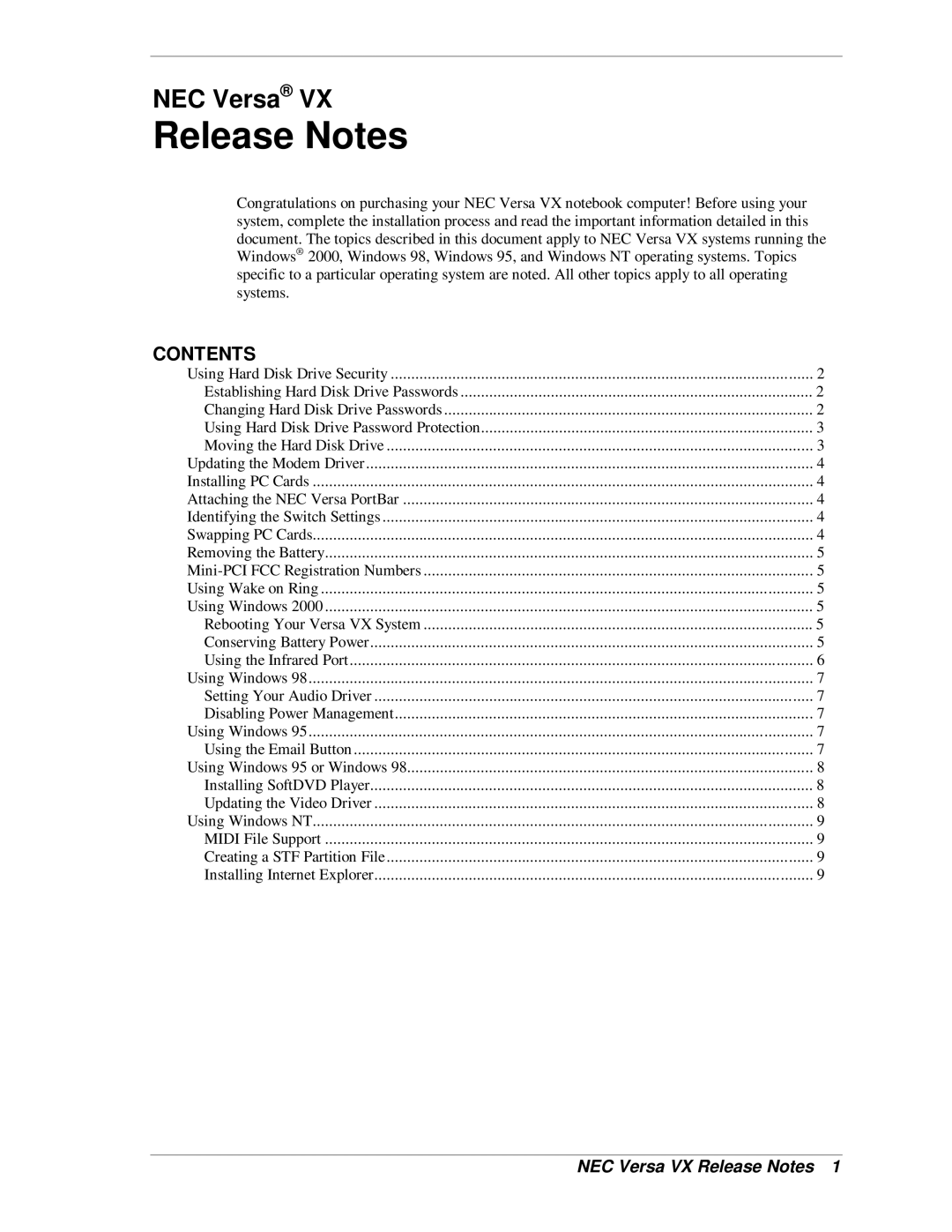Versa VX specifications
The NEC Versa VX is a notable model in the world of portable computing, designed to cater to users who prioritize performance, durability, and versatility. Launched in the early 2000s, the Versa VX stood out due to its combination of advanced technologies and user-friendly features that appealed to both professionals and everyday consumers.One of the striking characteristics of the NEC Versa VX is its sleek and compact design, making it an ideal choice for mobile users. Weighing only a few pounds, it provides portability without compromising functionality. Its robust casing is engineered to withstand the rigors of travel, featuring a spill-resistant keyboard and reinforced hinges.
At the core of the Versa VX is its Intel processor, which at the time provided impressive performance metrics for running multiple applications simultaneously. The device typically came equipped with options for various Intel processors, allowing users to choose based on their specific performance needs. Furthermore, the notebook supported a range of memory configurations, enabling users to upgrade for enhanced multitasking capability.
The display on the NEC Versa VX is another highlight, offering a clear and vibrant screen that enhances the user experience, whether for work, multimedia, or casual browsing. The screen size, usually around 14 inches, strikes a balance between portability and usability, making it suitable for both professional tasks and entertainment.
Storage configurations vary, with traditional hard disk drives and later models featuring solid-state drives (SSDs) for faster data access speeds and improved reliability. The Versa VX was also equipped with USB ports, a floppy disk drive, and an optional CD/DVD drive, showcasing its compatibility with various peripherals and media formats.
In terms of connectivity, the NEC Versa VX often included integrated Ethernet and modem options, with some models offering Wi-Fi capabilities that gave users the advantage of wireless internet access well ahead of many competitors at the time. This feature set made the notebook particularly appealing to business users and students who require internet access on the go.
Operating system options included Windows variants, providing a familiar interface for users accustomed to Microsoft software. This compatibility extended to a wide range of applications, enhancing productivity and versatility. The NEC Versa VX positioned itself as a reliable choice for individuals seeking both performance and portability in their computing devices. Overall, with its combination of strong computing power, robust design, and essential connectivity features, the NEC Versa VX remains a noteworthy example of the evolution of mobile computing.

